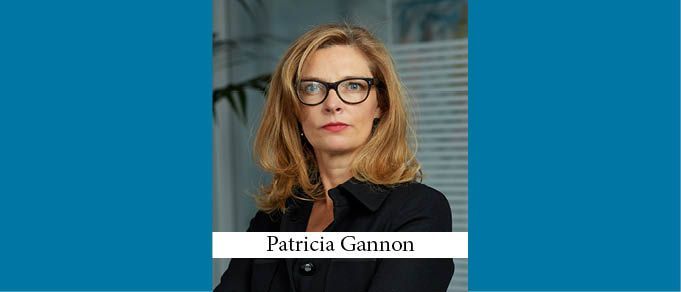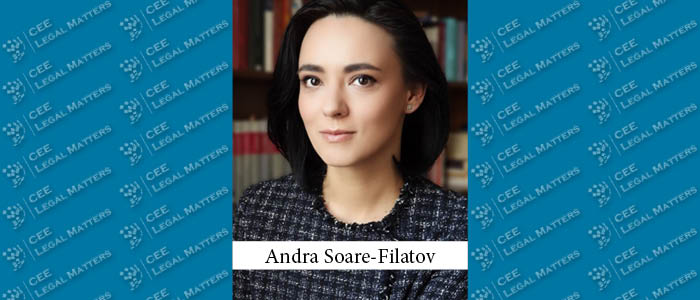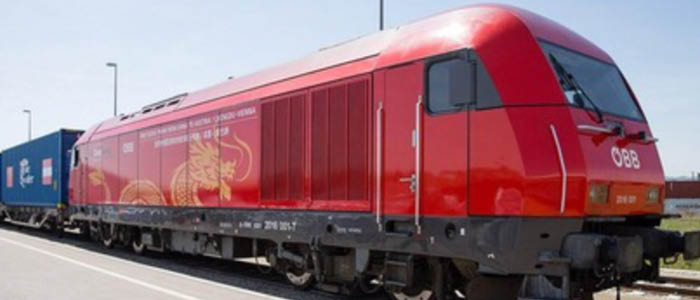Patricia Gannon is a founder and Senior Partner at Karanovic & Nikolic, where she focuses primarily on the management, business development, strategy, and expansion of the firm. Gannon qualified as a Solicitor in Ireland and after a short period working at the European Commission in Brussels she moved to Serbia and founded the firm. She is a committed advocate of corporate philanthropy, and was amongst the founding members of the Serbian Charity Forum, an umbrella forum of leading foundations in the country.
CEELM: Run us through your background and how you ended up in your current role with K&N.
P.G.: Well, lets just say that living in Belgrade was not in my life plan when I was back at law school in Trinity College in Dublin. Yugoslavia was a place and concept very far away from Ireland in the 1990’s. It still is – but I have managed to transition and evolve into a person very content in multiple places.
Even in law school, I was interested in international law and working with people culturally different from me. I was very active in the European Law Students Association and served as President of that organization and finally ended up elected to the International Board located in Brussels for a year. At the same time, I worked in the European Commission – at that time in DG XI (today’s DG Environment) – where I got to see firsthand how that institution defended implementation of the Directives throughout the Union.
I completed my formal training as an Irish Solicitor and ended up moving to Serbia for personal reasons back in the Milosevic era, a time when more people were trying to leave the country rather than move to it. I had qualified at a top- tier Irish law firm and really enjoyed M&A and inbound investors coming into Ireland back then and saw the opportunity to develop a European style law firm in the Balkans.
Almost 23 years later, after war, bombing, sanctions and the birth of new states after the collapse of Yugoslavia, I spend much of my time working throughout the region to develop the firm. This year I am the Chair of the European Forum of the International Bar Association so that takes up quite a bit of my time too – managing all the events in Europe together with my IBA Officers.
CEELM: Was it always your goal to work abroad?
P.G.: Yes it was, as I really enjoy travel and new languages, cultures, and people. In the business world, I find it fascinating how, despite all the globalization that has taken place, people still ignore the cultural implications in negotiation and business and are surprised at how different things are from how we do them “back home.” This has been particularly evident in terms of perception of the Balkan region, where I still spend a lot of time trying to make sure foreign investors understand the context of the economy they are investing in and the history and society they will be working in. The situation is significantly better than it was when I first came to the region, and my view is that as long as we stay out of the international news for negative political reasons, we see more positive effects on the economy as more foreign investors some in.
CEELM: Tell us briefly about your practice, and how you built it up over the years.
P.G.: Well, my personal experience was in the Corporate and Banking spheres but my role today really has been in management, strategy, and direction. Clearly by coming to the Balkans, I had the chance to become the entrepreneur that I am as there was no other way to use my skills other than by establishing my own firm. Together with Partners Dejan Nikolic and Dragan Karanovic, we grew the firm initially out of the early stage privatizations in Serbia. Working with the World Bank initially, we sold groups of companies in strategic sectors as the economy was opened for new investment after Milosevic. These large projects required a number of lawyers to work together, and the work allowed us to grow quickly. Introducing specializations and a department structure first in the market allowed us to cross-sell services to existing clients and develop new clients looking for a more specialized type of lawyer. It also allowed us to grow again. The next obvious step was to develop services in new markets where clients were looking for a team of lawyers who understood their business and could deliver top quality service efficiently.
The rest, as they say, is history, and today I am proud of the solid brand we have built and the excellent committed people we have who work for it. That is more my inspiration now and I spend quite a lot of my time mentoring and motivating young lawyers.
CEELM: What do your clients appreciate most about you?
P.G.: I am known for being direct and sometimes that can be a challenge for people around me but certainly foreign clients really appreciate a frank and transparent view of the situation they are in and how best to resolve it. The fact that I have over 20 years experience in multiple markets gives me an overview which few have.
CEELM: Do you find Serbian clients enthusiastic about working with foreign lawyers, or – all things considered – do they prefer working with local lawyers? Is that true across the Balkans?
P.G.: As we look to the future and possible European integration, I believe we need to embrace others different from ourselves – and this is also the case with legal experience. I firmly believe that we all have much to learn by working with foreign lawyers who share their experience with us and as such favor the more liberal end of our profession. Particularly today, the one thing we can be sure of is change, and I encourage practitioners everywhere to try to embrace it rather than deny it. In the Balkans, lawyers feel that we are behind the curve of change, but if our clients start to expect more efficiency from lawyers we will have to adapt to their needs. I think that in time we will see a greater opening up of the profession as that will be what clients are looking for.
CEELM: How about the cultures? What differences strike you as most resonant and significant between Ireland and Serbia?
P.G.: To be honest, I often hear about how similar both cultures are but I think what we have in common is an appreciation of going out, drinking, and having fun. Even in the dark days of Milosevic I was always impressed at how young people tried to live a “normal” life and went out all the time. Ireland is a small country at the periphery of Europe and Serbia is geographically located between East and West so our views on the world and our histories have been quite different. Although the Celts moved through here thousands of years ago, the Balkans had many more invaders than Ireland did and that has an impact on the Balkan view of life I think.
CEELM: What particular value do you think a senior expatriate lawyer in your role adds – both to a firm and to its clients?
P.G.: The role is quite interesting and defines the firm’s approach to collaborating with different cultures. It’s one of our core values. I bridge ideas and opportunities and cultures in a way and its been very helpful to everyone. Having so much experience across the region gives me a broad overview and for newcomers to the region this is a comparative advantage. I am luckily at the stage of my career that I get to select more carefully how I can best contribute to the growth of the firm and promoting the region internationally more is clearly a key part of that. With respect to clients I work more on bringing them in and my colleagues take over the relationships then so we all do what we are best at doing.
CEELM: Outside of Serbia, which Balkan country do you enjoy visiting the most, and why?
P.G.: I am very lucky to travel within the Balkans all the time and enjoy the best that each country has to offer. Right now I am based in Ljubljana and enjoy life in a smaller city which has wonderful infrastructure and cute places to go out. I get to visit Bled or Bohinj for the weekend. In Croatia, nothing beats the coast in summer, although Zagreb can be very quiet as a result. I make a point of visiting Sarajevo at least during the buzzing film festival which I encourage people to do – really a wonderful place and people! I really enjoy the Montenegrin coast off-season, in September, when the water is still warm and there are no crowds, and I always try to get to Skoplje for the jazz festival at least. The entire former Yugoslavia has so much to offer. People are always surprised by it and even after all these years being here I enjoy the edginess of these peoples.
CEELM: What’s your favorite place to take visitors in Belgrade?
P.G.: It really depends on who the visitor is and their age. For older visitors it feels like there is less cultural stuff to visit – limited museums, galleries, and the like – but the overall ambience of the place appeals to people. For younger people it is fast becoming a party capital in Europe. Like most, I make a point of being by the rivers as much as I can. I try to do my morning walk by the Danube and end up in one of the many Beton Hala resturants every week. For night life, places like Mladost, Ludost, and Radost (and finally Gadost for the after party) are perfect for different music and the local scene.
This Article was originally published in Issue 5.2 of the CEE Legal Matters Magazine. If you would like to receive a hard copy of the magazine, you can subscribe here.
























